Finding Nainsukh
An invocation
"It is the Goddess who sits on the tip of our paintbrush."
—Pandit Seu, the painter’s father, leading a prayer to the Devi in Nainsukh (Amit Dutta, 2010)
The tree on whose limbs our tradition sits
whose shade is our image making, is tired.
The muse knows its only virtue as fading
in the way that decay is beautiful.
We must make of the world, a simple thing
that deepens. We must hold the frame firm,
despite the trembling body. Even a haveli
is little more than a flickering wick
whose shadow trips on its own sharpness.
This is why we must labour in the darkness
so that it is the memory of our being here
that remains and not what we saw.
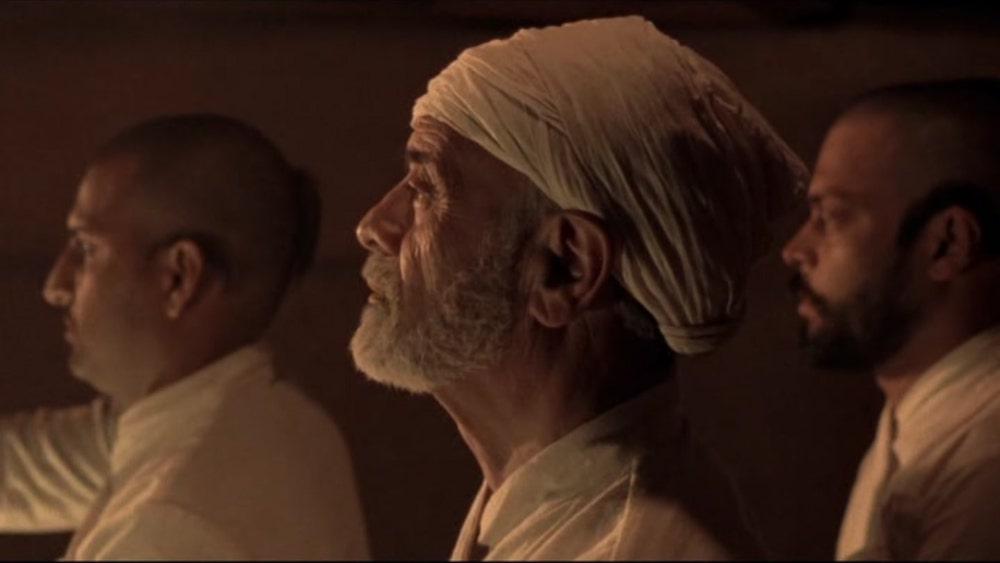
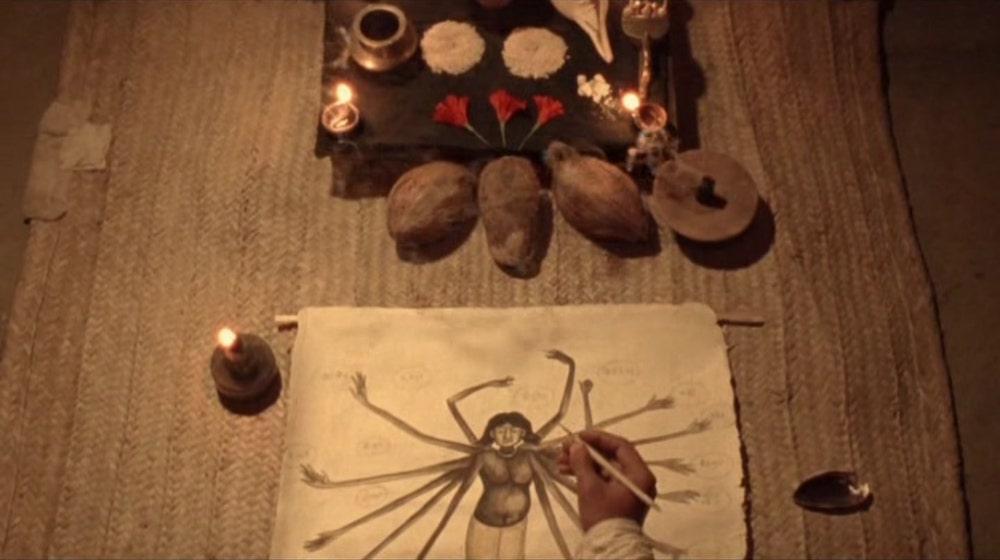
Pilgrimage
A figure hastens slowly white needle point wrapped
in purpose and the sound of a forest's memory cleaving
The body is little more than a blemish a drifting swathe
of isosceles limbs in a tangle of dry shrub more whiff
than skin. I can feel him now this balm rubbed into
the arthritic grey of trees that know only to leave
Before he reaches home a drop rivulets through
a canvas of green blood that leaves no trail
and suddenly the valley sheens skin glows
with shimmer Something divine wakes up
in a painting of an albino morning
His head starched with surmise a turbaned dome
inlaid with wings that carry sunspilt carpets
of breathing paddy robes smoothened with the silence
of watching Can you imagine a monk without his flowing
habit?
if you could slow down electricity seed blurs into wave
a kind of waiting stillborn flight, suggested
only by the loosening of feathers
The forest gathers round
The message is whispered
Breeze turns unwillingly tasting each yellow dream
of mustard before settling into brook.
Lone shadow what story will your brush fashion?
He reins in the sweet small deaths, the thrum of shifting
darks, drawing silent ruptures with staccato precision.
The body becomes horse hair trails river
from the brooding of crickets. It is not that all colours
scorch into white, nor that the immediacy of canvas
demands testimony. Something is growing
the eye greens flower sleeps dust scatters aground
and the languor of cows
becomes a momentary pulse in his fingers.
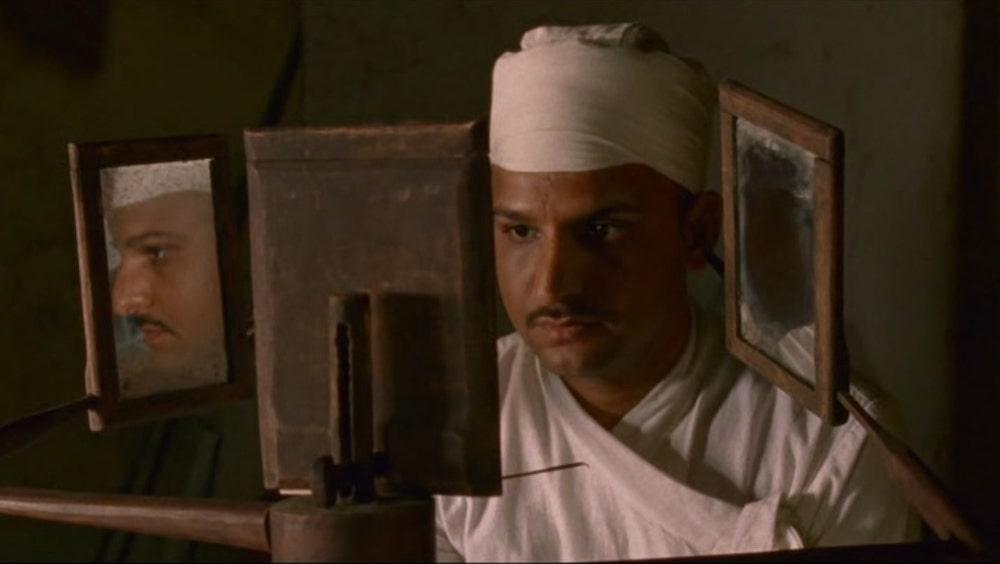
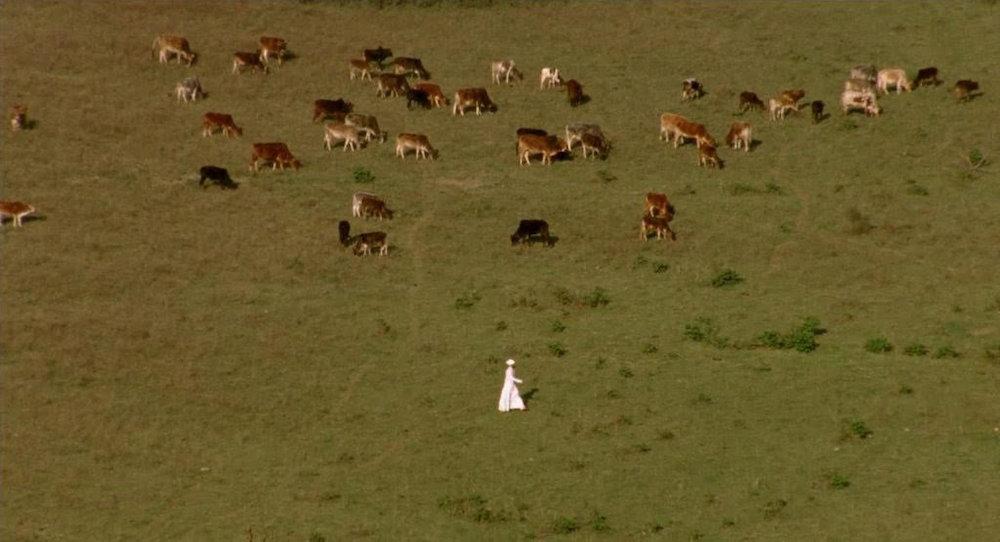
Conversation
On a stone embankment, in whose jaw
the sky climbs bird by bird
the artist sits mixing teal with green
twin sickles of horizon
Blood spills from the night's gash
and the time is a man of solitude
breathing unevenly beside an archway
that curves like a conspiratorial whisper.
The moon, whose freckled white is an aberration,
cuts the village into two snip snip snip a peacock
screeches and the horse anticipates darkness.
My fingers have eyes and the valley's ear
is pricked with birdsong twilight accordions
into colour, opens up and offers its pip.
He sizes up the scene
I size up the scene
Beside my bedroom window, two mynahs arrive,
wondering what all the fuss is about
They converse in hushed tones
Their questions grow insistent as they haggle
with their cousins from another land -
two songs of disquiet meet in a screen
knotted into the fist of a painter painted
I pause the film. He freezes. The frame chokes
mid-flare, and the birds sit outside transfixed,
waiting.
One of them cries out awkwardly,
and stops.
When he remembers this moment, it will be as a necklace
of heads arguing noiselessly, caught in mischievous piety.
This copy of the will that has passed between eyes,
is mine now, and the birds have come to the wake, again.
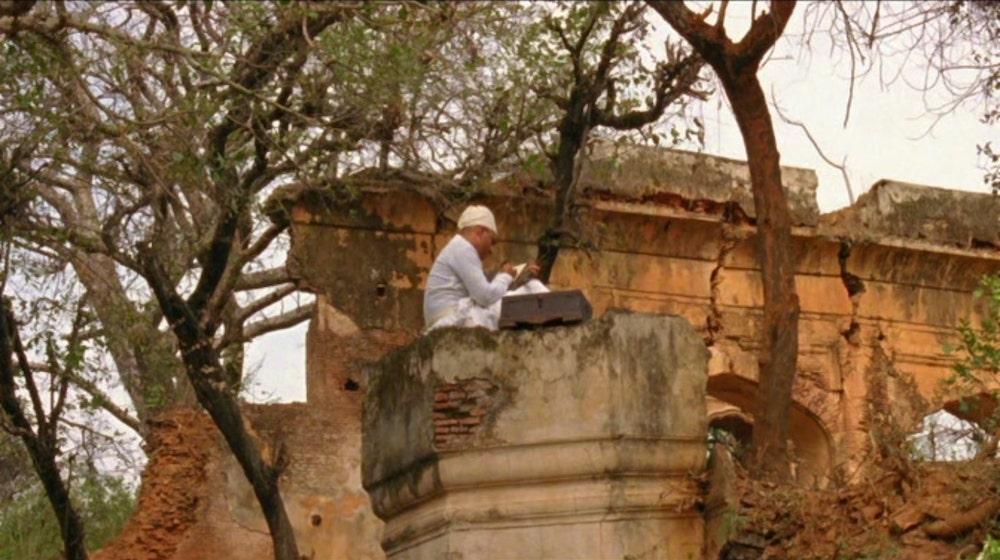
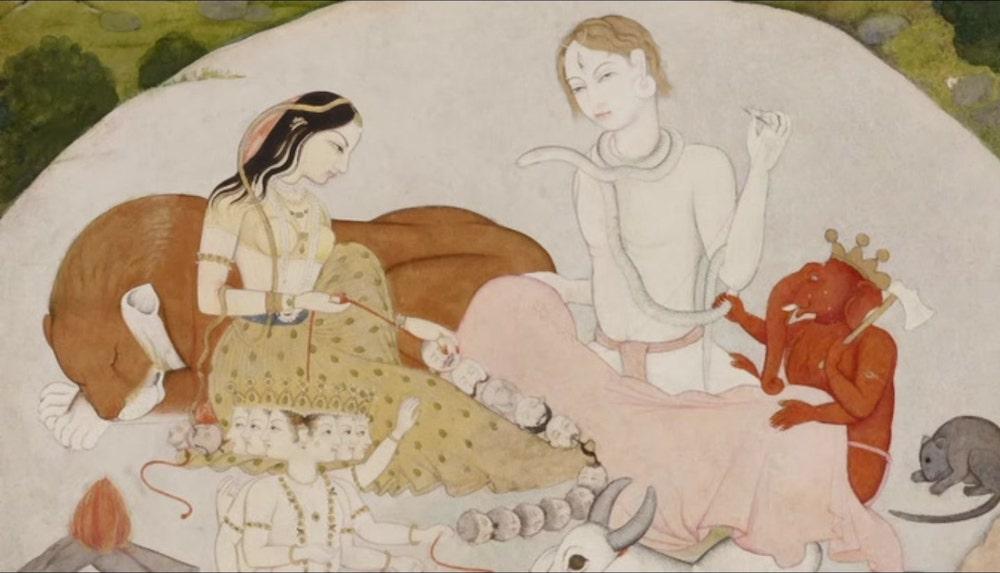
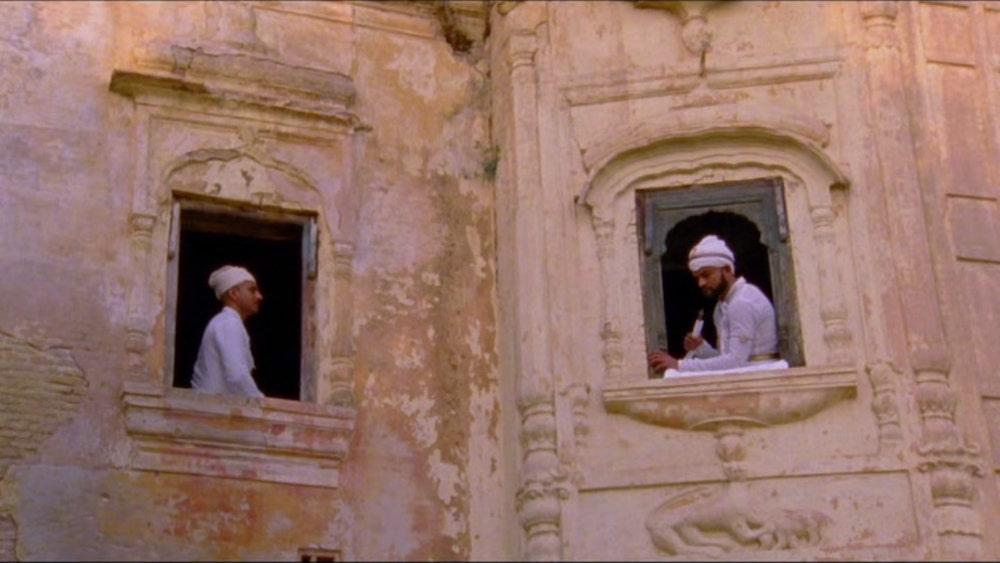
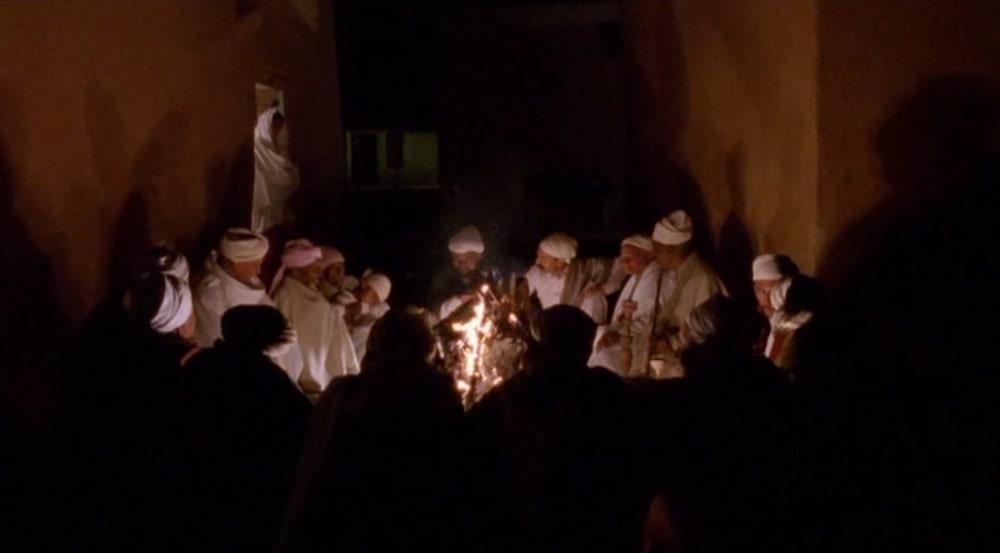
Finding Nainsukh
‘Green changed to white, emerald to an opal: nothing was changed.’
- Ernest Dowson, Absinthia Taetra (2010)
‘Nainia’, the King coughs as he returns a life’s work. ‘Beloved “eye”, It’s yours, keep it.’ The painter leaves the tent with his paintings. The soft talons of his gaze clutch a trembling heart. The camera recedes into watchful contemplation of a messenger who knows the impossibility of translation.
O Nainia, when you recruited the forest in your quest, when the haunting breeze of your imagination slipped into thicket, when a gurgling river cracked through the crucible of a leafless evening, reflecting your sky in serene monochrome, I felt the silence of your white.
Consider this:
In a painting of a winter scene, figures huddle around a fire. Darkness, sprinkled with the salt of light, shimmers on two trees whose vantage of entangled lovers grows darker with the warmth of their shivering. The night fans out as slate, with scratches of emerald, but the figures are an unknowable white. The cold is transparent, blanching a moustache, or a shawl. Their conversation grows loud.
O Nainia, you knew, that colour is not always yours to bestow!
This world, a confusion of light, this brash pigment that speaks louder than the surface. The flailing orange of epiphany, the anxiety of an amethyst sky that storms in a ruler's chest, as he stands at the ramparts, scaring away the birds - again, unnaturally white. This is yours to know, and his to feel. But is it the thing itself?
The fabric of your visions, dapple into place, not by the erratic absence of dye, but the presence of something else. They rise up inside me as questions that swathe the thievery of glance.
Is the dancer’s pirouette different from the song of love? Are they both born in the eye or in the painting? Is this the sound of longing?
I live in scraps now, knowing that you cannot answer. Like the filmmaker who reached your perch, I smile as I look down from the top of the mountain, and repeat your name.
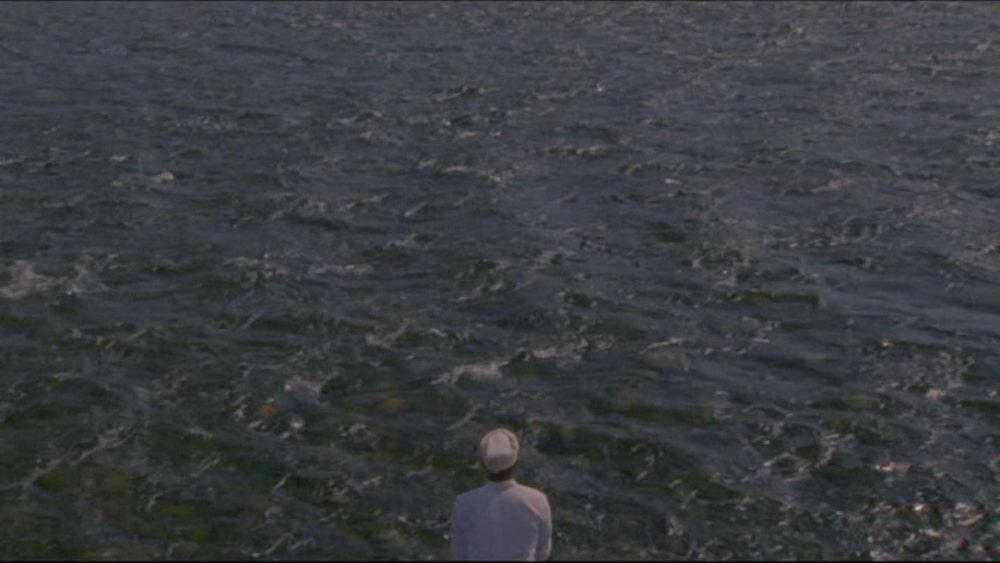
Poet's note: This series of poems have been written as companion pieces to Amit Dutta’s Nainsukh. They are envisioned as another layer in a palimpsest of conversations across time and space, threading together art, cinema and poetry. I am deeply grateful to Amit Dutta, whose work and vision opened a window to this beautiful madness. My gratitude also to Gauri, who listened patiently, and responded with the affirming curiosity of shared love.
The trailer to the film can be found here, and the entire film can be found here.
All images from Nainsukh by Amit Dutta. India, 2010. 90 minutes.




